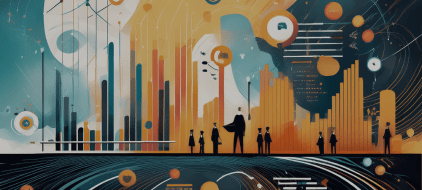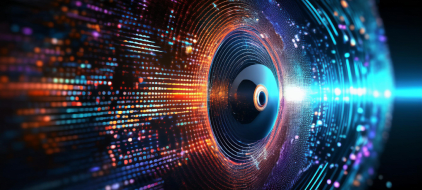Artificial Intelligence (AI) and automation technologies are revolutionizing the workplace, driving significant shifts in the job market. From enhancing productivity and efficiency to transforming job roles and creating new opportunities, AI-powered automation is reshaping the future of work. This article explores the profound impact of AI on the job market, examining the roles most likely to be automated, the emerging opportunities, and the challenges that lie ahead.
The Rise of AI-Powered Automation
AI-powered automation refers to the use of AI technologies, such as machine learning, natural language processing, and robotics, to perform tasks that typically require human intelligence. These technologies can process vast amounts of data, recognize patterns, make decisions, and execute tasks with speed and precision. Automation is not limited to repetitive, manual tasks; it increasingly encompasses complex cognitive functions, making it a versatile tool across various industries.
Key Drivers of Automation
Several factors are driving the adoption of AI-powered automation in the workplace:
- Cost Efficiency: Automation reduces labor costs and increases operational efficiency, making it an attractive option for businesses seeking to improve their bottom line.
- Productivity Gains: AI systems can work around the clock without fatigue, leading to significant productivity improvements.
- Accuracy and Consistency: AI algorithms can perform tasks with high precision and consistency, minimizing errors and enhancing quality.
- Data-Driven Insights: AI can analyze large datasets to generate actionable insights, supporting better decision-making and strategic planning.
Impact on Job Roles and Industries
AI-powered automation is reshaping job roles and industries in various ways. While some jobs are at risk of automation, new roles and opportunities are emerging, transforming the employment landscape.
Jobs Most Likely to Be Automated
- Routine Manual Jobs: Tasks that involve repetitive physical activities, such as assembly line work, packing, and material handling, are highly susceptible to automation. Robots and automated systems can perform these tasks more efficiently and accurately than humans.
- Data Entry and Processing: Jobs that involve data entry, data processing, and administrative tasks are at risk of automation. AI-powered software can handle these tasks quickly and accurately, reducing the need for human intervention.
- Customer Service: AI-driven chatbots and virtual assistants are increasingly being used to handle customer inquiries, complaints, and support requests. These AI systems can provide instant responses, improving customer service efficiency.
- Transport and Logistics: The transport and logistics industry is experiencing significant automation, with the development of autonomous vehicles, drones, and automated warehouses. These technologies can streamline supply chain operations and reduce the need for human drivers and warehouse workers.
Jobs Less Likely to Be Automated
- Creative Roles: Jobs that require creativity, innovation, and artistic skills, such as graphic design, content creation, and marketing, are less likely to be fully automated. While AI can assist in these tasks, human creativity remains a critical component.
- Healthcare Professionals: While AI can enhance diagnostics and treatment planning, the human touch in healthcare is irreplaceable. Doctors, nurses, and caregivers provide empathy, emotional support, and complex decision-making that AI cannot replicate.
- Education and Training: Teachers, trainers, and educators play a crucial role in shaping the minds of future generations. While AI can support personalized learning, the interpersonal skills and mentorship provided by educators are essential.
- Management and Leadership: Leadership roles that require strategic thinking, emotional intelligence, and people management are less likely to be automated. Human leaders are needed to navigate complex organizational dynamics and inspire teams.
Emerging Opportunities and Job Market Shifts
As AI-powered automation transforms existing job roles, it also creates new opportunities and demands new skills. The future of work will be characterized by a dynamic interplay between automation and human capabilities.
New Job Roles
- AI and Machine Learning Specialists: The demand for AI and machine learning experts is growing rapidly. These professionals develop and implement AI algorithms, design intelligent systems, and optimize machine learning models.
- Data Scientists and Analysts: Data scientists and analysts play a crucial role in extracting insights from large datasets. They use statistical techniques and machine learning algorithms to analyze data and inform business decisions.
- Cybersecurity Experts: As businesses increasingly rely on digital technologies, the need for cybersecurity experts is paramount. These professionals protect organizations from cyber threats and ensure the security of sensitive data.
- Robotics Engineers: Robotics engineers design, build, and maintain automated systems and robots. They work across various industries, including manufacturing, healthcare, and logistics, to develop innovative robotic solutions.
- Human-AI Collaboration Specialists: These professionals focus on optimizing the interaction between humans and AI systems. They ensure that AI tools are user-friendly and support workers in their tasks, enhancing productivity and job satisfaction.
Skills for the Future Workforce
The evolving job market demands a new set of skills that complement AI-powered automation. Workers must develop a blend of technical and soft skills to thrive in the future of work.
- Technical Skills: Proficiency in programming languages, data analysis, machine learning, and robotics is essential. Understanding how to work with AI tools and technologies will be a critical skill for many job roles.
- Digital Literacy: Digital literacy encompasses the ability to navigate and use digital tools and platforms effectively. Workers must be comfortable with digital communication, collaboration, and problem-solving.
- Critical Thinking: Critical thinking involves analyzing information, evaluating options, and making informed decisions. As AI handles routine tasks, human workers will focus on complex problem-solving and strategic thinking.
- Creativity and Innovation: Creativity and innovation are key differentiators in a world where routine tasks are automated. Workers must be able to think outside the box, generate new ideas, and drive innovation.
- Emotional Intelligence: Emotional intelligence, including empathy, communication, and interpersonal skills, is crucial for roles that involve collaboration and leadership. These skills enable workers to build relationships, manage teams, and navigate organizational dynamics.
Challenges and Considerations
The integration of AI-powered automation into the workplace presents several challenges and considerations that must be addressed to ensure a smooth transition and equitable outcomes.
Job Displacement and Economic Inequality
One of the primary concerns associated with automation is job displacement. Workers in roles that are susceptible to automation may face unemployment or the need to transition to new careers. This can exacerbate economic inequality, particularly for low-skilled workers who may have limited opportunities for reskilling.
Governments, businesses, and educational institutions must collaborate to develop strategies for workforce reskilling and upskilling. Investment in education and training programs is essential to equip workers with the skills needed for the future job market.
Ethical and Social Implications
The widespread adoption of AI-powered automation raises ethical and social implications. Issues such as bias in AI algorithms, data privacy, and the impact on mental health and well-being must be carefully considered.
Organizations must prioritize ethical AI development, ensuring that algorithms are transparent, fair, and accountable. Additionally, measures should be taken to protect workers' privacy and promote a healthy work-life balance.
Workforce Adaptation and Acceptance
The successful integration of AI-powered automation requires workforce adaptation and acceptance. Workers may be resistant to change, particularly if they perceive automation as a threat to their job security.
Organizations should foster a culture of continuous learning and innovation, encouraging workers to embrace new technologies. Transparent communication and involvement of employees in the implementation process can help build trust and acceptance.
The Role of Policy and Regulation
Policymakers play a crucial role in shaping the future of work and addressing the challenges associated with AI-powered automation. Effective policies and regulations are needed to ensure equitable outcomes and protect workers' rights.
Reskilling and Education Programs
Governments should invest in reskilling and education programs to prepare the workforce for the future job market. Partnerships with businesses and educational institutions can facilitate the development of training initiatives that align with industry needs.
Labor Market Regulations
Labor market regulations should be updated to reflect the changing nature of work. This includes ensuring fair wages, benefits, and protections for gig and freelance workers who may be impacted by automation.
Ethical AI Guidelines
Policymakers should establish ethical guidelines for AI development and deployment. These guidelines should address issues such as algorithmic bias, transparency, and accountability, ensuring that AI technologies are used responsibly and ethically.
Conclusion
AI-powered automation is reshaping the future of work, driving significant shifts in the job market. While some jobs are at risk of automation, new roles and opportunities are emerging, transforming the employment landscape. The future workforce will require a blend of technical and soft skills to thrive in a dynamic and automated world.
To navigate the challenges and opportunities presented by AI-powered automation, a collaborative approach is essential. Governments, businesses, educational institutions, and workers must work together to develop strategies for reskilling, ethical AI development, and workforce adaptation. By embracing innovation and fostering a culture of continuous learning, we can ensure a future of work that is inclusive, equitable, and prosperous for all.








